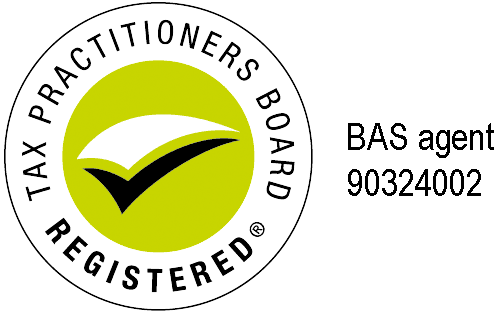SPRING BUSINESS BULLETIN
Finances—Fixed or Variable?
With the Reserve Bank of Australia (RBA) cash rate at record lows, a number of banks have entered into the fixed rate battle with some very attractive loan packages.
Borrowers can now lock in a rate as low as 4.99% over a 5 year term; comfortable in the knowledge that their repayments will not increase over this quite lengthy period. In deciding whether to lock in your interest rate, the following factors need to be weighed:
Whether variable rates are likely to fall further (and therefore put you at a disadvantage if you have chosen to fix your rate). On this question, with the RBA rate already at just 2.5%, many commentators believe there is little scope for rates to fall much further, while they may increase if the economy improves or inflation picks up.
- Fixed rates give you the ability to plan ahead with certainty.
- Variable rate loans are often more feature-rich. For instance most fixed rate loans do not offer an offset facility whereby you can place your income into an account and the balance of that account is offset against your loan balance resulting in a reduction of interest costs.
- If you pay out a fixed rate loan early (either by selling the property or refinancing) you may incur break costs. Depending on the amount of the loan, these charges can be significant. Of course, the choice is not necessarily either/or – many choose to fix just a portion of their loan, and on the remaining balance enjoy the flexibility and benefits of a variable product. In deciding which option is best for you, consult with your financial advisor.
Tax Talk: Top 5 Audit Triggers!
ATO audits are something that every taxpayer and every business dreads. While you or your business can be selected at random by the ATO, often your conduct is the trigger for an audit. What are some common audit triggers?
- Unpaid Superannuation
Not paying superannuation on time and in full for your employees is a sure-fire way to attract ATO attention and potentially trigger a wider review into your affairs.
- Inconsistency Between BAS and Tax Return
The income declared on your or your business’s year-end tax return should broadly align with the amount of income you have recorded throughout the year on your BASs. Large discrepancies invite and often result in ATO scrutiny.
- Falling Outside the ATO Small Business Benchmarks
If your business falls outside the ATO’s Small Business Benchmarks (www.ato.gov.au/Business/Small-business-benchmarks) this will most likely lead to further ATO enquiry, and possibly an audit. In simple terms, the benchmarks are industry-specific financial ratios that the ATO has developed to assist in comparing your business against others in the same industry. If your business falls outside the benchmarks, the ATO will likely make contact and give you the opportunity to explain why. For instance, it may be that you have higher costs or lower selling prices than other similar businesses of the same size within your industry. Whatever the reason, it is important that you communicate it to the ATO if they ask. If the ATO is satisfied with your explanation, this may be the end of the matter…and a review or audit may be averted.
- Compliance History
If you have outstanding debts or outstanding returns/BAS (or are consistently late in these areas) you are much more likely to be audited than businesses with a good compliance history.
- Company Car But No FBT
If your business has purchased a motor vehicle but has not lodged an FBT return or at least included in its income tax return an employee contribution so as to minimise the FBT payable on the car benefit, then this will likely lead to further ATO scrutiny. It is rare indeed for a company car to not be used at least in part for private purposes during the year.
Human Resources: Mentally Healthy Workplaces
 A recent survey of more than 2 000 workers conducted by independent researchers from Instinct and Reason ranked workplace mental health as second only to remuneration as the most important factor when deciding to stay in a job, with almost half of the respondents having left a job because it was mentally unhealthy.
A recent survey of more than 2 000 workers conducted by independent researchers from Instinct and Reason ranked workplace mental health as second only to remuneration as the most important factor when deciding to stay in a job, with almost half of the respondents having left a job because it was mentally unhealthy.
With mental health being such an important factor in employee retention, non-profit organisation Heads Up (www.headsup.org.au) offers the following tips for employers on how to create a mentally healthy workplace:
- Work demands – regularly review workloads at team meetings to ensure all employees have sufficient resources to cope
- Bullying and discrimination – put in place processes for the reporting of and dealing with inappropriate personal behaviours
- Recognition and reward – formally or informally congratulate employees on a job well done. Be sure to recognise ingenuity and effort, not just productivity
- Control – Give employees a say on how their own work is organised rather than imposing direction.
Business Advice: Systematise, Systematise!
While there are many keys to business success, most successful businesses operate under a set of documented systems and procedures. . This can take the form of (a) internal procedures/manuals/checklists for staff on how to perform various tasks (b) putting processes in place for staff to record how they spend their time and (c) checklists for clients on what you require from them in order to undertake work for them. Setting the time aside to systematise your business by formulating these procedures/manuals/checklists has a number of advantages including:
- Work is performed in a consistent manner across your organisation
- New staff are more likely to settle in quickly and have an increased understanding of their role
- Staff productivity is significantly improved and able to be measured against industry benchmarks
- Invaluable internal knowledge is not lost to the business when existing staff move on
- Your business becomes more easily saleable and often for a higher price. Prospective purchasers are attracted to businesses that have strong, documented systems/procedures in place
- Time is saved when performing tasks. In business, time is money!
Of course some businesses are more able to be systematised than others. Whatever industry you’re in, think about which aspects of your business can be systematised…and then invest the time in doing so!
Proudly brought to you by
Australian Bookkeepers Network
This article is for guidance only, and professional advice should be obtained before acting on any information contained herein. Advanced Financial Services Pty Ltd takes no responsibility for any action(s) taken on the basis of the information contained herein or for any errors or omissions in that information. Advanced Financial Services Pty Ltd expressly disclaims any liability whatsoever, to any person in relation to any reliance, in whole or in part on such information.




